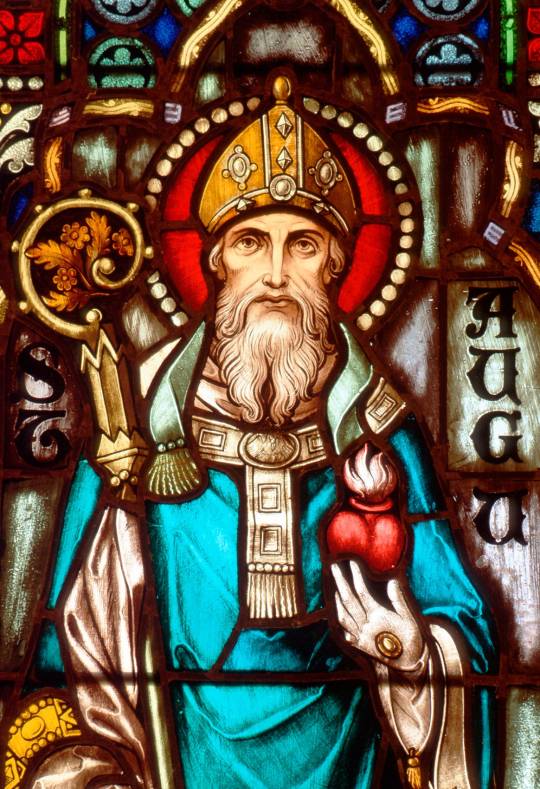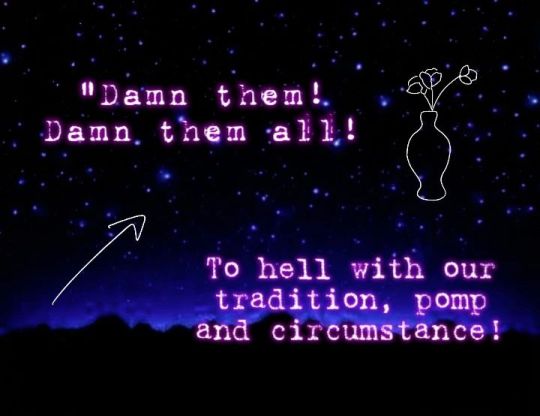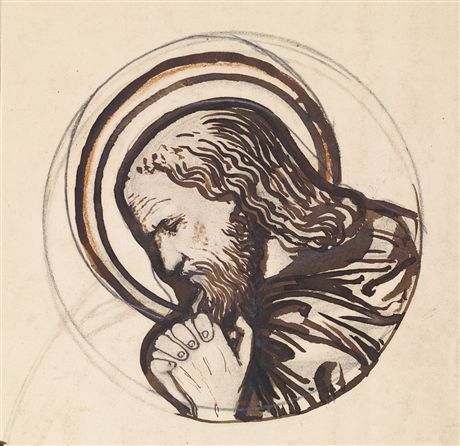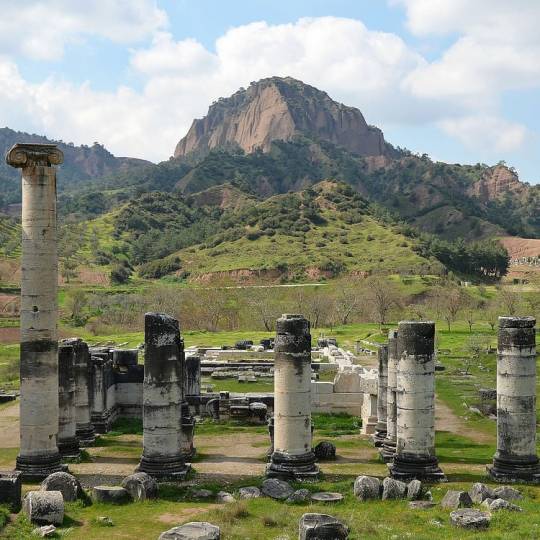#earlychristian
Explore tagged Tumblr posts
Photo

This map illustrates the journeys of Paul the Apostle (aka Saul of Tarsus, or Saint Paul, generally regarded as one of the most important figures of the Apostolic Age) in the middle of the 1st century CE. The map depicts the spread of early Christianity and the extensive cultural interactions within the Roman Empire. These travels, documented in the New Testament's Acts of the Apostles and Paul's...
48 notes
·
View notes
Quote
In fact, I’m convinced that if any politician advocated for an economy that reflected the early Church’s economy, they would quickly be accused of socialism, communism, and Marxism.
Were the Early Christians Socialists?
4 notes
·
View notes
Text
"The truth is like a lion; you don't have to defend it Let it loose; it will defend itself."
Augustine of Hippo, also known as Saint Augustine, was a theologian and philosopher of Berber origin and the bishop of Hippo Regius in Numidia, Roman North Africa.

Born: 13 November 354 AD, Thagaste
Died: 28 August 430 AD (age 75 years), Ruins of Hippo (Hippo Regius), Annaba, Algeria.
Early Life and Conversion: Augustine, born in 354 AD in North Africa (modern-day Algeria), led a life of worldly pursuits until his conversion to Christianity in 386. His spiritual journey is detailed in his famous autobiography, "Confessions."
Bishop of Hippo: Augustine served as the Bishop of Hippo (in present-day Annaba, Algeria) from 395 until his death in 430. During his episcopacy, he played a crucial role in defending orthodox Christian doctrine against various heresies.
Major Works: Augustine's writings have had a profound impact on Christian theology. His notable works include "Confessions," an introspective autobiographical work, and "The City of God," a monumental treatise on theology, philosophy, and the destiny of humanity.
Doctrine of Original Sin: Augustine developed the influential theological concept of Original Sin, which posits that humanity inherits a sinful nature from the fall of Adam and Eve. This idea has had a lasting impact on Christian theology and soteriology.
Influence on Western Christianity: Augustine's teachings have left an indelible mark on Western Christianity. His views on grace, predestination, and the relationship between faith and reason have shaped theological discussions for centuries, influencing both Catholic and Protestant traditions.
#AugustineOfHippo#ChurchFather#Theologian#Philosopher#Bishop#Confessions#CityOfGod#EarlyChristianity#AureliusAugustinus#CatholicSaint#ChristianDoctrine#OriginalSin#Neoplatonism#FaithAndReason#MoralPhilosophy#Patristics#DoctorOfTheChurch#WesternChristianity#ConversionStory#TheologicalInfluence#philosophy#deep thinking#quoteoftheday#today on tumblr#deep thoughts
2 notes
·
View notes
Text

Roman Legions and Early Church Christians – A History" delves into the fascinating intersection of two pivotal forces in ancient history: the mighty Roman legions and the rise of early Christianity. Explore how these powerful legions shaped the ancient world and how the Christian faith emerged, spread, and faced persecution within the vast Roman Empire. This historical journey offers insights into the struggles, triumphs, and lasting impact of both the Roman military and the early Christian movement. A must-read for history enthusiasts and those curious about the foundations of modern Western civilization…
0 notes
Text
🔮✨ Welcome back, fellow knowledge seekers, to another captivating chapter of The Radical Scholar’s exploration into ancient texts and hidden wisdom. Today, we embark on a transformative journey, peering into the depths of the enigmatic Book of Enoch. Within its sacred pages lie profound revelations and timeless wisdom. Join us as we unveil 10 fascinating facts that shed light on its ancient origins, heavenly journeys, apocalyptic themes, and the profound influence it has wielded on early Christianity and contemporary spirituality. 📚🌌
#BookOfEnoch#AncientWisdom#HeavenlyJourneys#ApocalypticVisions#Enoch#WatchersAndNephilim#EarlyChristianity#Scholarship#MysticalTexts#HiddenWisdom#DivineMysteries
1 note
·
View note
Photo

The character of Miranda is frustrated. Tradition demands one thing and a higher power orders another. She is isolating allies. Women are not taken seriously. Get yourself wrapped up in the war preparations. Nobody wants it, yet isn't expecting the depths. It doesn't seem to end... #MilitaryCampaign #WorldWar #LordGeneral #MeetingOfTheGenerals #MilitaryTradition #MilitaryParade #GoodSoldiers #OldSoldiersNeverDie #TheyJustFadeAway #Klenard #FantasySeries #MotherChurch #WarOnIdeas #EarlyChristianity #WarOnCommunism #ActionAdventure #IndieAuthor #NewBritain https://www.instagram.com/p/CoFkJEqrOYc/?igshid=NGJjMDIxMWI=
#militarycampaign#worldwar#lordgeneral#meetingofthegenerals#militarytradition#militaryparade#goodsoldiers#oldsoldiersneverdie#theyjustfadeaway#klenard#fantasyseries#motherchurch#waronideas#earlychristianity#waroncommunism#actionadventure#indieauthor#newbritain
0 notes
Text
youtube
Join Douglas Vandergraph as he delves into the inspiring transformation of the Apostle Matthew—from a despised tax collector to a devoted disciple of Jesus Christ. Explore Matthew's unique role among the twelve apostles, his authorship of the Gospel bearing his name, and his enduring impact on Christianity. This comprehensive biography offers deep insights into his life, ministry, and legacy.
Visit my YouTube channel here: https://www.youtube.com/@douglasvandergraph and don’t forget to subscribe for more inspiring content!
#ApostleMatthew #SaintMatthew #GospelOfMatthew #MatthewTheEvangelist #LifeOfApostleMatthew #BiographyOfSaintMatthew #MatthewTheTaxCollector #TwelveApostles #NewTestament #EarlyChristianity #DouglasVandergraph #BiblicalHistory #ChristianApostles #TransformationStory #DisciplesOfJesus
#apostlematthew#matthew#jesusapostle#b8ble#biblestudy#youtube#motivation#success#success story#successful#successstories#motivationalspeaker#motivationalstory#inspirationalstory#motivateyourself
0 notes
Text
youtube
A few Shocking, Controversial, and Unusual Bible Vereses from the Gospel of Thomas. Number 114 is Mind numbing.....The Gospel of Thomas is a collection of 114 sayings attributed to Jesus, discovered in the mid-20th century near Nag Hammadi, Egypt. Unlike the canonical Gospels, it is not a narrative but a compilation of Jesus' teachings, emphasizing direct spiritual knowledge and the inner kingdom of God. Some scholars view it as an early Christian text that reflects a Gnostic perspective, focusing on personal enlightenment rather than orthodox doctrines. The sayings often encourage introspection and reveal a mystical understanding of Jesus' message.
#GospelOfThomas #JesusTeachings #GnosticGospels #SpiritualWisdom #MysticalChristianity #NagHammadi #AncientTexts #ChristianMysticism #HiddenGospels #InnerKingdom #EsotericChristianity #GnosticWisdom #LostGospels #EarlyChristianity #SpiritualEnlightenment #SacredTexts #ApocryphalGospels #JesusSayings #SpiritualJourney #InnerTruths
#BibleVerses #GospelWisdom #ScripturalInsights #BiblicalTeachings #SpiritualVerses #SacredScripture #HolySayings #DivineTeachings #AncientWisdom #BiblicalTruths #ScriptureStudy #JesusWords #BibleReflections #BibleVerseOfTheDay #HolyScriptures #spiritualawakening #religiousbeliefs #religiousviews #understandinggod #understandingtheuniverse #jesusteachings
#bible scripture#bible verse#youtube#bible study#bible#religious trauma#aliens and ufos#bible quote#religion#aliens#shocking news#gods#gospel#scripture
1 note
·
View note
Photo

St Paul, 1862, Edward Burne-Jones
Medium: indianink,paper,chalk,pencil
16 notes
·
View notes
Photo

These things were created by a Japanese early Christian during their persecution and banned era approximately 450 years ago. The statue of saint Francisco of Assisi was also created by unknown Christian at those era. #stfrancisofassisi #franciscanos #franciscan #earlychristian #christian #catholic #catholicfaith #persecution #マリア観音 #キリシタン #キリシタン弾圧 #カトリック #戦国時代 (at Tsu Catholic Church) https://www.instagram.com/p/CDTx0e8n4jO/?igshid=13b45qwukwjdg
#stfrancisofassisi#franciscanos#franciscan#earlychristian#christian#catholic#catholicfaith#persecution#マリア観音#キリシタン#キリシタン弾圧#カトリック#戦国時代
0 notes
Link
4 notes
·
View notes
Photo

Melito of Sardis and his Apology for Christianity
Melito of Sardis (d. c. 180 CE) was a bishop in the city of Sardis (near modern-day Sart, Turkey) who was regarded as one of the greatest Christian thinkers, writers, and apologists of his time. In the modern age, he is best known for his Apology for Christianity sent to emperor Marcus Aurelius regarding the persecution of Christians.
He is also, however, recognized for his lists of Old Testament works, commentary on scripture, and advocacy of celebrating Easter at the same time as the Jewish Passover in order to maintain the relationship between Judaism and Christianity. His work Peri Pascha (On the Pascha or On the Passover), only discovered in the past 100 years, focuses on the validity of the practice of those known as Quartodecimans who maintained that Easter needed to be celebrated on the 14th of the month Nisan (March-April) in keeping with the Jewish tradition of Passover and, because of this and other details in his works, it is believed he was a convert from Judaism.
Continue reading...
40 notes
·
View notes
Quote
Reading the stories of many of the early Christians, I find that they were surprisingly like us. They were influenced by the surrounding culture in their thinking about finances, food, marriage and sexuality, patriotism and nationalism, and so on. More than anything, it is convicting how many of them, like our actor friend whose story we just learned, went to church on Sunday, but spent the rest of the week compartmentalizing their faith—just like so many Christians do today, often inadvertently, without meaning to. And it is convicting, furthermore, to see that at times, cultural sin did not flow from a rebellious heart, but simply resulted from a lack of better options. How well do we today support those in our own churches who seem deeply sinful, but perhaps are more similar to this actor convert than to someone rebelliously fighting against God?
Will the Real Cultural Christians Please Stand Up?
2 notes
·
View notes
Text
The Gnostic Gospels
The Gnostic Gospels are a collection of ancient texts that were discovered in the mid-20th century, shedding light on the beliefs and practices of early Christian groups known as Gnostics. These texts are not part of the traditional New Testament canon found in mainstream Christianity but are considered important for understanding the diversity of early Christian thought.
The word "Gnostic" comes from the Greek word "gnosis," meaning "knowledge" or "insight." Gnosticism was a complex and diverse movement that emerged in the early centuries of Christianity and was influenced by various religious, philosophical, and mystical traditions of the time.
Key Characteristics of Gnosticism:
Esoteric Knowledge: Gnostics believed in the existence of secret knowledge or insights (gnosis) that could lead to salvation and a deeper understanding of the divine realm.
Dualism: Gnosticism often posited a dualistic view of the world, dividing reality into two realms: the material, imperfect world created by a lesser or ignorant deity (the Demiurge), and the spiritual, perfect realm of the supreme divine being.
Salvation through Knowledge: Gnostics taught that salvation involved liberating the divine spark trapped within the material world, and this could be achieved through the acquisition of secret knowledge.
Rejection of the Material World: Gnostics generally regarded the material world as inferior and often associated it with evil or ignorance.
Christology: Gnostic views of Jesus Christ varied, but many Gnostic texts presented Jesus as a divine being who imparted secret knowledge to his followers, helping them escape the material world and attain salvation.
The Nag Hammadi Library: The most significant collection of Gnostic texts was found in 1945 near the town of Nag Hammadi in Egypt. This discovery led to the unearthing of several ancient manuscripts, including the Gospel of Thomas, the Gospel of Mary, the Gospel of Philip, and many others. These texts provide valuable insights into the diverse beliefs and practices of early Gnostic communities.
Importance and Controversy: The Gnostic Gospels have sparked significant scholarly interest and debate. Some scholars believe that elements of Gnostic thought influenced early Christianity, and the conflicts between orthodox Christian beliefs and Gnostic teachings may have contributed to the development of Christian orthodoxy. Others argue that Gnosticism should be seen as a distinct religious movement separate from mainstream Christianity.
It's important to note that the Gnostic Gospels do not represent a unified or coherent system of beliefs but rather a diverse range of ideas and perspectives. As with any historical and religious texts, interpreting the Gnostic Gospels requires careful analysis and consideration of their historical context and the beliefs of the communities that produced and preserved them.
#GnosticGospels#EarlyChristianity#NagHammadiLibrary#Gnosticism#AncientTexts#ChristianHistory#GospelofThomas#GospelofMary#GospelofPhilip#EsotericKnowledge#EarlyChristianCommunities#DiversityofBeliefs#ReligiousScholarship#HistoricalContext#ReligiousTexts#ChristianOrthodoxy#DiverseBeliefs#ScholarlyDebate#ReligiousMovements#SpiritualBeliefs#today on tumblr#deep thoughts#deep thinking
0 notes
Photo

More Colours of early Corfu from the Old City. #thetravellinghat #thatsmyhat #hatcouture #hatcouturecreations #corfu #oldcorfutown #coloursofcorfu #byzantine #earlychristian #11thcentury #iconicart #roseumber #terracotta #mosaics #colourinspiration (at Corfu, Kerkira, Greece) https://www.instagram.com/hatcouturecreations/p/BwmZpF4g5ua/?igshid=q3zgg5c95umz
#thetravellinghat#thatsmyhat#hatcouture#hatcouturecreations#corfu#oldcorfutown#coloursofcorfu#byzantine#earlychristian#11thcentury#iconicart#roseumber#terracotta#mosaics#colourinspiration
0 notes
Photo

Good morning, everyone, and welcome to the first edition of #FindOutFriday the sequel to #TriviaTuesday To find out the references, go here: https://www.saraelliemackenzie.com/post/findoutfriday-answers-1 #TriviaAnswers #SpoilerAlert #Beware #AnneBoleyn #Tudors #SecondWife #CatherineII #RussianTsarina #LastEmpress #TheCrusades #OrdersOfTheKing #EarlyChristianity #VietnamWar #GulfOfTonkin #Communism #HistoryBuff #InspiredByHistory #IndieAuthor #LocalAuthor https://www.instagram.com/p/Cn69b6FrbdM/?igshid=NGJjMDIxMWI=
#findoutfriday#triviatuesday#triviaanswers#spoileralert#beware#anneboleyn#tudors#secondwife#catherineii#russiantsarina#lastempress#thecrusades#ordersoftheking#earlychristianity#vietnamwar#gulfoftonkin#communism#historybuff#inspiredbyhistory#indieauthor#localauthor
0 notes